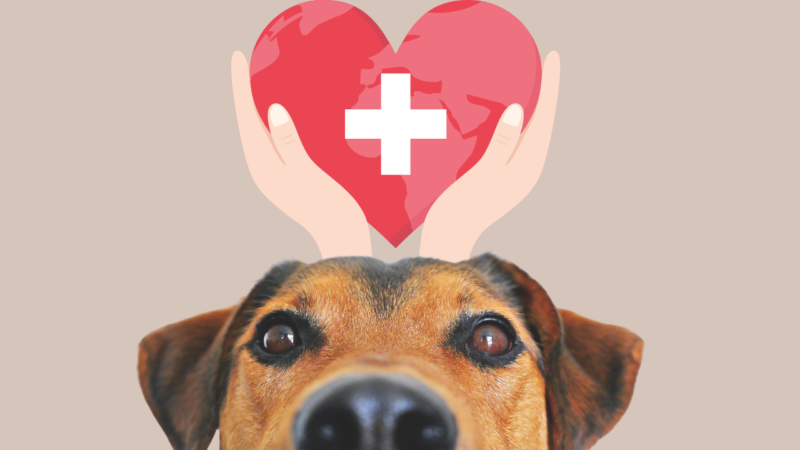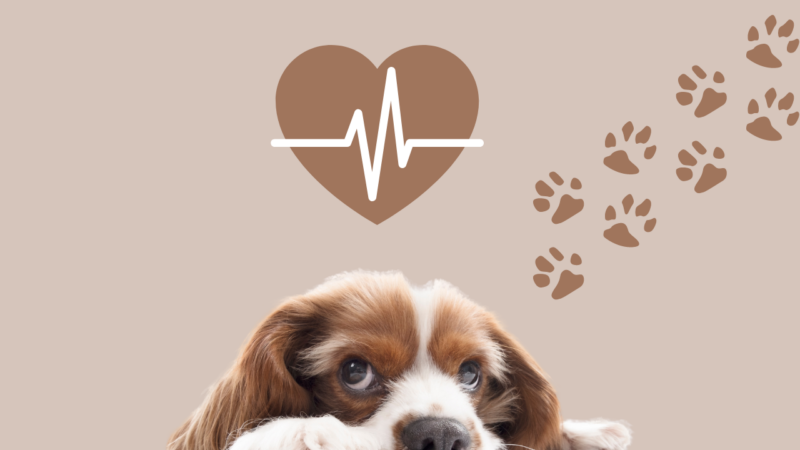Discovering that your dog has heart disease can be a heartbreaking experience. But don’t lose hope! While the diagnosis may feel overwhelming at first, with proper care, many dogs with heart disease live long, happy, and fulfilling lives. Just like humans, dogs with heart conditions need special attention, but that doesn’t mean they can’t enjoy their daily activities, playtime, or snuggles with you. With the right approach, you can ensure that your dog continues to thrive despite their heart disease.
1. Commit to Regular Veterinary Checkups
Early detection of changes in the heart’s function can prevent complications and improve your dog’s prognosis.
For those interested in being even more prepared for emergencies, consider learning how to perform pet CPR. Resources like MyCPR NOW offer pet CPR and first aid certification, which can be invaluable in situations where immediate care is needed before reaching a vet.
What to Expect During a Checkup
Your veterinarian may use several tools to monitor your dog’s heart health:
- Chest X-rays: These help assess the size of the heart and detect fluid in the lungs, which can indicate congestive heart failure.
- Echocardiogram (heart ultrasound): This provides detailed images of the heart’s structure and function.
- Electrocardiogram (ECG): This measures electrical activity and can detect abnormal heart rhythms (arrhythmias).
- Blood pressure monitoring: High blood pressure can strain the heart, so it’s important to keep it under control.
Veterinary Visits Frequency
In the early stages of heart disease, your dog may only need checkups every six months. However, as the disease progresses, more frequent visits—every 3 months or even monthly—may be necessary.
2. Follow Prescriptions Carefully

| Medication Type | Examples | Function |
|---|---|---|
| Diuretics | Furosemide | Helps reduce fluid buildup in the lungs and body, common in heart disease. |
| ACE Inhibitors | Enalapril, Benazepril | Relaxes blood vessels, making it easier for the heart to pump blood. |
| Pimobendan | Pimobendan | Increases the heart’s contractility and helps dilate blood vessels, used in congestive heart failure. |
| Beta-Blockers | Atenolol, Carvedilol | Manages abnormal heart rhythms and reduces the heart’s workload. |
| Spironolactone | Spironolactone | A diuretic that protects the heart from fibrosis and scarring. |
Missing doses can cause setbacks in your dog’s treatment plan. Set up reminders on your phone or use a daily pill organizer to ensure you don’t miss a dose. Over or under-medicating can lead to complications. Always administer medications according to your vet’s instructions.
If your dog shows any side effects like vomiting, lethargy, or changes in appetite, notify your vet immediately. Adjustments to medication may be necessary.
3. Keep an Eye on Your Dog’s Weight

Carrying extra weight puts additional stress on the heart, making it harder for your dog to circulate blood efficiently. However, it’s also important not to allow your dog to lose too much weight, as underweight dogs can lose muscle mass, which is also detrimental to heart function.
Pay Attention to Portion Control
Follow feeding guidelines provided by your vet. Overfeeding can lead to weight gain, while underfeeding could mean your dog isn’t getting enough nutrients.
4. Adjust Your Dog’s Exercise Routine
Exercise is still important for dogs with heart disease, but it needs to be modified based on their condition. The right type and amount of activity will depend on your dog’s stage of heart disease.
116kg and I’m 72kg. So she’s about 44kg or 90lbs.
The key is going slowly with Cindy. The vets and my friend Sybille who is a human surgeon said the chance of heart failure is very high. No shocks like mad diets of swimming etc they advised. Just flow patience and doing the… pic.twitter.com/lECNVFdtHg
— Niall Harbison (@NiallHarbison) September 25, 2023
How to Exercise a Dog with Heart Disease
- Gentle, Short Walks: Low-impact exercise like walking is beneficial. Start with short walks and monitor your dog’s response. As their tolerance improves, you can gradually increase the distance, but avoid overexertion.
- Keep an Eye on Symptoms: Watch for signs of fatigue, heavy panting, coughing, or difficulty breathing during or after exercise. If you notice these, stop the activity and let your dog rest.
- Avoid Strenuous Activities: Activities like running, jumping, or rough play can put too much strain on a dog’s heart and should be avoided.
5. Manage Your Dog’s Environment – Stress and Comfort Matter

| Care Tip | Description |
|---|---|
| Stick to a Routine | Dogs with heart disease thrive on routine. Regular feeding times, walks, and rest periods create a sense of stability and calm. |
| Create a Comfortable Space | Provide your dog with a quiet, cozy area where they can rest undisturbed. Make sure the space is easy to access, especially if your dog has mobility issues due to their condition. |
| Minimize Loud Noises | Loud environments can stress your dog out. If possible, reduce exposure to loud TVs, music, or other noises that might cause anxiety. |
| Avoid Overexcitement | Limit highly stimulating activities like boisterous play or interactions with too many people or pets. |
| Consider Calming Aids | If your dog tends to be anxious or easily stressed, calming products like pheromone sprays, calming collars, or even supplements (approved by your vet) can help ease their anxiety. |
6. Focus on Nutrition
Diet Guidelines
| Dietary Recommendation | Description |
|---|---|
| Consume Low-Sodium Foods | Excess sodium can lead to fluid buildup, so avoid salty treats or table scraps. Your vet may recommend a specialized low-sodium diet for your dog. |
| Give Your Dog More Protein | Heart disease can lead to muscle wasting, so your dog may need more protein than usual to maintain muscle mass. Talk to your vet about the right balance of protein for your dog’s diet. |
| Don’t Forget About Fatty Acids | Omega-3 fatty acids (found in fish oil) are known to benefit heart health. Ask your vet if adding a fish oil supplement to your dog’s diet is appropriate. |
| Supplement | Description |
|---|---|
| Taurine | An amino acid that supports heart function and is particularly important for certain breeds prone to heart disease (like Cocker Spaniels and Dobermans). |
| L-Carnitine | A supplement that helps heart muscles use energy more efficiently. |
| Coenzyme Q10 (CoQ10) | An antioxidant that may improve heart function in some dogs. |
Avoid giving your dog over-the-counter supplements without consulting your vet. Some supplements can interact with medications or worsen your dog’s condition.
In Summary
Caring for a dog with heart disease requires patience, diligence, and a lot of love. While the diagnosis can seem daunting at first, with the right care and lifestyle adjustments, your dog can continue to enjoy life.







